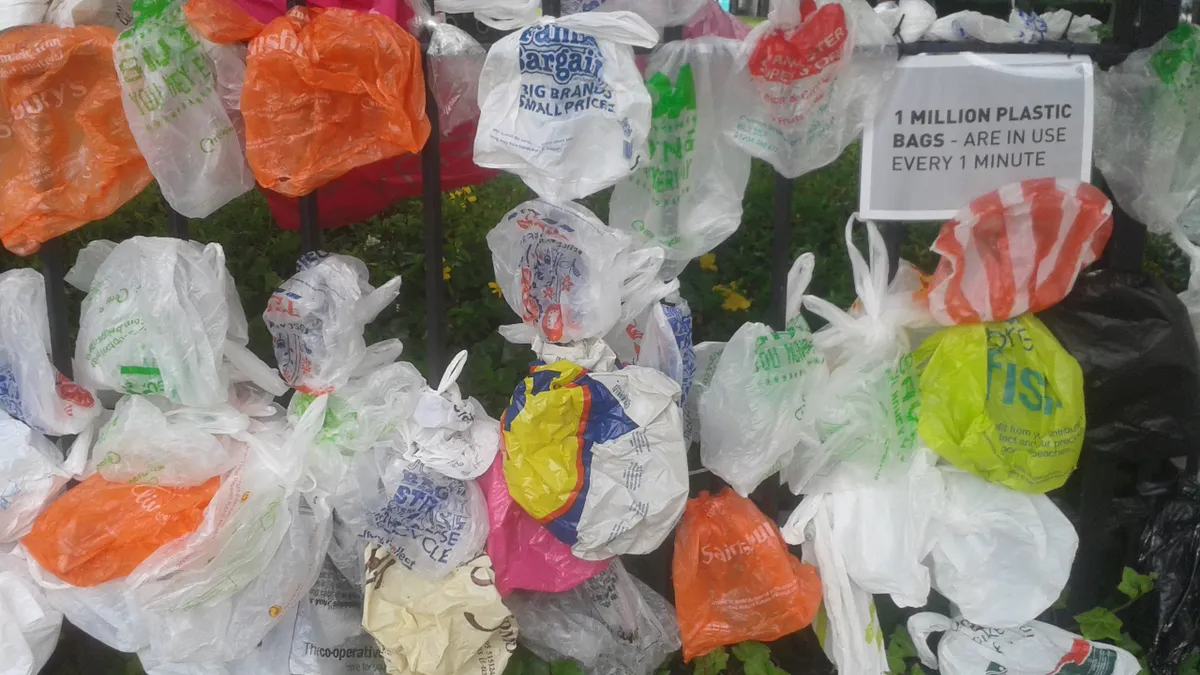Dive Brief:
- A Delaware bill sponsored by Rep. Deborah Hudson would allow the state’s shoppers to carry their own bags to stores or pay 5 cents per plastic bag, with money from the sales invested in store recycling and education campaigns, according to Newsworks.
- Delaware retailers are mandated to establish recycling programs where they accept customers’ used plastic bags, provide recycling collection bins for them, and provide information on recycling and reusable bags.
- The Wilmington City Council passed a resolution in February that supports Hudson’s proposed plastic bags and recycling legislation. The bipartisan bill awaits committee review before it can go before the general assembly.
Dive Insight:
Every year, US consumers toss 100 billion plastic bags, yet less than 5% get recycled; the remainder end up in storm drains and ultimately oceans, in streets, and or landfills. Some cities have gone as far as to ban their use, while others are doing what Delaware is considering. Washington, DC; Portland, ME; and Boulder, CO are among cities that charge a small fee for plastic bags.
Five cents a bag is not much, and people will still have an option for their use. But the law will remind them of the accumulating plastic bags problem, or make some people aware for the first time, and could be a catalyst to change — or so Hudson believes.
"Each city probably takes home about 500 of these single-use bags a year — that’s a trash and pollution problem ... Now we’re trying to change shopper behavior," said Hudson, as reported in Newsworks.
Now stores are required to provide recycling bins for plastic bags, and they are filling up.
"Since the program started, most stores would tell you the amount of time the bin has to be emptied has increased," said Julie Miro Wenger, executive director of the Delaware Food Industry Council, to Newsworks.
Dee Durham, co-founder of the consumer Education Bring Your Own Bag Delaware campaign, is among those who believe Delaware is ready to make this commitment and have the expectation written into law. Still there are opponents who believe 5 cents per bag would burden already struggling low-income shoppers. And even Wenger, who is behind the bill, said there will still be a need for plastic bags by some.
But Hudson believes that giving the option, with a five cent cost attached, would make a statement and encourage people to think about harm from accumulating plastics bags.
"I just want to raise the level of awareness. I want people to think about it when they drive around and see the bags in the trees … It takes too long for them to degrade, so it’s something we should address," she said.













